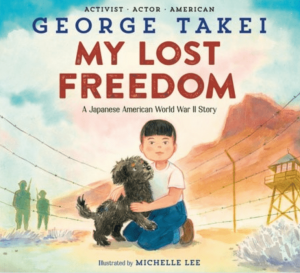By Tara Mae
Like the next chapter in an ongoing serial, the Port Jefferson Documentary Series (PJDS) returns with new tales to tell in its fall season. Running on select Thursdays between September 5 and November 7 at 7 p.m., seven distinct films explore the strands of connection that galvanize and unite people despite social, economic, and geographic divides.
Held at a new location, the First United Methodist Church in Port Jefferson, the screenings explore interpersonal relationships, honed in common cultures or communal responsibility.
“When the program began to take shape, that celebration of community became apparent and guided this season’s curation process,” PJDS co-chair Kelly DeVine said.
Following the documentaries, there will be Q&A sessions between patrons and guest speakers associated with the films’ productions or subject matter.
Tom Needham, executive producer and host of “Sounds of Film” on WUSB, will reprise his role of moderator for four of the films, leading post-viewing discussions. The moderators of the other three films have yet to be announced.
This personable exchange invites deeper understanding between artists and attendees, both in intent and practice.
“There is a theme running through all seven films despite coming from different continents and approaches. That theme is the importance of community and small “d” democracy — citizen engagement and agency,” DeVine said.
Sponsored by Maggio Environmental; Metal Masters; Covati & Janhsen, CPAs; Port Jeff Storage; and the accounting firm of Saranto Calamas, CPA with support from Suffolk County and the Greater Port Jefferson-Northern Brookhaven Arts Council, the Series begins with Happy Campers which chronicles families, both found and of blood, choosing to enjoy the last days in a blue-collar summer colony as they contend with their imminent eviction from the seasonal trailer park that has been sold to developers.
One Person, One Vote? investigates the complications and intricacies of the apparently enigmatic Electoral College as it follows four presidential electors of different parties during the 2020 presidential election.
Join or Die traces the devolution of the United States’ civic structure over the span of 50 years, through the lens of scientist Robert Putnam’s career and research.
Invisible Nation provides uncommon access to Tsai Ing-wen, the first woman President of Taiwan, and examines the delicate balance she must maintain between the interests of China and the United States.
Checkpoint Zoo depicts the residents of the Feldman Ecopark animal rescue in Ukraine as well as the courageous zookeepers and volunteers who risk their lives to save the nearly 5,000 creatures from the crosshairs of conflict during the early days of Russia’s invasion of Ukraine.
It’s Basic traces the expansion of the Guaranteed Basic Income program and how, as it gains popularity, it attracts pushback amidst increasing social and economic disparities.
Searching for Amani chronicles the journey of 13-year-old Kenyan aspiring journalist Simon Ali who, with the help of his best friend Haron, investigates his father’s mysterious death.
(For dates and times, please see Film Schedule below)
“Documentaries provide a unique perspective on real-life events and issues, allowing us to learn about the world beyond our own experiences. We can learn about places and people we know just a little about or get a more in-depth look at issues or people or subjects,” PJDS co-chair Wendy Feinberg said.
This season’s nuanced community focus on the screen aligns with the community cohesion behind-the-scenes. Shared passion for a story well-told continues to inspire the team that produces PJDS.
“What intrigues me is the sense of discovery that dawns when you see a film that opens up a puzzle, reveals a hidden world or unwraps the interior life of someone fascinating,” PJDS co-chair emeritus Lyn Boland said.
Pre-screened by PJDS’ film board and a selection of long-time volunteers, the documentaries, which this season were chosen by DeVine and co-chair Wendy Feinberg, elucidate as they entertain.
“For 20 years I have watched documentaries with a critical eye, searching for what I thought would be a perfect fit for our audience. I looked for the basic elements: does it tell a story, what can I learn from it, is there a balance between talking heads and a good narrative,” PJDS community outreach coordinator Barbara Sverd said.
Such attention to detail and dedication extends beyond the board, consisting of DeVine, Boland, Sverd, and Feinberg.
“We could not put on our fun, friendly events without our amazing volunteers Yvonne Lieffrig, Denise Livieri, Honey Katz, Suzanne Velazquez, Ronnie Levy, and Lise Poulos along with our tech wizard, Jeuel Bryant,” DeVine said.
With a steadfast support system, PJDS’ upcoming season is a multifaceted testament to the ambition, artistry, and acumen found when a group of individuals come together in support of a common cause.
“Programming for the film series rests on curating work that resonates with our audience and which lends itself to connecting our audiences to a meaningful communal experience,” DeVine said.
Film Schedule:

◆ The Fall 2024 season kicks off with a screening of Happy Campers on Sept. 5. The film chronicles the final days of a working-class summer colony in a scrappy trailer park that just happens to hold the secret to a rich life. When their affordable paradise is sold to developers, the residents brace for eviction and the loss of friendships that span generations. Guest speaker will be Director Amy Nicholson.
 ◆ One Person, One Vote?, to be screened on Sept. 12, unveils the complexities of the Electoral College, the uniquely American and often misunderstood mechanism for electing a president. Panel discussion including Maximina Juson, the director, and Nancy Marr from the League of Women Voters to follow.
◆ One Person, One Vote?, to be screened on Sept. 12, unveils the complexities of the Electoral College, the uniquely American and often misunderstood mechanism for electing a president. Panel discussion including Maximina Juson, the director, and Nancy Marr from the League of Women Voters to follow.
 ◆ Next up is Join or Die on Sept. 26, a film about why you should join a club … and why the fate of America depends on it. In the spirit of the film’s theme, the PJDS will host various local volunteer & civic groups to join in conversation about our community. Please consider bringing a small dessert to share. Bring a sweet, make a new friend and join a group!
◆ Next up is Join or Die on Sept. 26, a film about why you should join a club … and why the fate of America depends on it. In the spirit of the film’s theme, the PJDS will host various local volunteer & civic groups to join in conversation about our community. Please consider bringing a small dessert to share. Bring a sweet, make a new friend and join a group!
 ◆ After a brief hiatus, the season continues with Invisible Nation on Oct. 10. With unprecedented access to Taiwan’s sitting head of state, director Vanessa Hope investigates the election and tenure of Tsai Ing-wen, the first female president of Taiwan. Q&A discussion to follow.
◆ After a brief hiatus, the season continues with Invisible Nation on Oct. 10. With unprecedented access to Taiwan’s sitting head of state, director Vanessa Hope investigates the election and tenure of Tsai Ing-wen, the first female president of Taiwan. Q&A discussion to follow.
 ◆ Checkpoint Zoo on Oct. 17 delves into the gripping account of a daring animal rescue that unfolded during the early days of the Russian-Ukrainian War, where over 5,000 animals were trapped in a besieged Feldman Ecopark. Panel discussion to follow including the director Joshua Zeman on Zoom.
◆ Checkpoint Zoo on Oct. 17 delves into the gripping account of a daring animal rescue that unfolded during the early days of the Russian-Ukrainian War, where over 5,000 animals were trapped in a besieged Feldman Ecopark. Panel discussion to follow including the director Joshua Zeman on Zoom.
 ◆ It’s Basic on Oct. 24 brings the issue of Guaranteed Basic Income (GBI) to national light by following the progress of the program against a backdrop of widening income gaps, politics, and growing social concern. Panel discussion to follow with coordinating producer Elizabeth Sehring.
◆ It’s Basic on Oct. 24 brings the issue of Guaranteed Basic Income (GBI) to national light by following the progress of the program against a backdrop of widening income gaps, politics, and growing social concern. Panel discussion to follow with coordinating producer Elizabeth Sehring.
 ◆ The season concludes with the heartfelt Searching for Amani on Nov. 7. In the heart of Kenya, a tragedy shatters a young boy’s life. Simon Ali, 13, finds himself in a world of mystery when his father, a respected conservancy guide, is found dead under suspicious circumstances. Armed with his video camera and an unwavering desire for truth, he embarks on a perilous journey to uncover the secrets behind his father’s demise. Panel discussion to follow.
◆ The season concludes with the heartfelt Searching for Amani on Nov. 7. In the heart of Kenya, a tragedy shatters a young boy’s life. Simon Ali, 13, finds himself in a world of mystery when his father, a respected conservancy guide, is found dead under suspicious circumstances. Armed with his video camera and an unwavering desire for truth, he embarks on a perilous journey to uncover the secrets behind his father’s demise. Panel discussion to follow.
All films begin at 7 p.m.
Tickets to the PJDS fall season are $10 adults and $5 students. Season passes are $58 each. First United Methodist Church is located at 603 Main Street, Port Jefferson, 11777. For more information, visit portjeffdocumentaryseries.com.




 To Be
To Be  My Lost Freedom: A Japanese American World War II Story, is the moving, beautifully illustrated true story for children ages 6 to 9 about growing up in Japanese American incarceration camps during World War II – from
My Lost Freedom: A Japanese American World War II Story, is the moving, beautifully illustrated true story for children ages 6 to 9 about growing up in Japanese American incarceration camps during World War II – from 


 “This is the first appearance that he’s making as the book is being released so we’re really honored and delighted he would choose us,” said Jud Newborn, Emmy Award-winning producer of special programs at the Centre. “It’s wonderful to be appreciated.”
“This is the first appearance that he’s making as the book is being released so we’re really honored and delighted he would choose us,” said Jud Newborn, Emmy Award-winning producer of special programs at the Centre. “It’s wonderful to be appreciated.” Newborn, who will be moderating the discussion, said that people are drawn to these events because the Centre brings in guests who can speak to the concerns and interests of people — and have been since it was opened in 1973.
Newborn, who will be moderating the discussion, said that people are drawn to these events because the Centre brings in guests who can speak to the concerns and interests of people — and have been since it was opened in 1973.






 ◆ One Person, One Vote?, to be screened on Sept. 12, unveils the complexities of the Electoral College, the uniquely American and often misunderstood mechanism for electing a president. Panel discussion including Maximina Juson, the director, and Nancy Marr from the League of Women Voters to follow.
◆ One Person, One Vote?, to be screened on Sept. 12, unveils the complexities of the Electoral College, the uniquely American and often misunderstood mechanism for electing a president. Panel discussion including Maximina Juson, the director, and Nancy Marr from the League of Women Voters to follow. ◆ Next up is Join or Die on Sept. 26, a film about why you should join a club … and why the fate of America depends on it. In the spirit of the film’s theme, the PJDS will host various local volunteer & civic groups to join in conversation about our community. Please consider bringing a small dessert to share. Bring a sweet, make a new friend and join a group!
◆ Next up is Join or Die on Sept. 26, a film about why you should join a club … and why the fate of America depends on it. In the spirit of the film’s theme, the PJDS will host various local volunteer & civic groups to join in conversation about our community. Please consider bringing a small dessert to share. Bring a sweet, make a new friend and join a group! ◆ After a brief hiatus, the season continues with Invisible Nation on Oct. 10. With unprecedented access to Taiwan’s sitting head of state, director Vanessa Hope investigates the election and tenure of Tsai Ing-wen, the first female president of Taiwan. Q&A discussion to follow.
◆ After a brief hiatus, the season continues with Invisible Nation on Oct. 10. With unprecedented access to Taiwan’s sitting head of state, director Vanessa Hope investigates the election and tenure of Tsai Ing-wen, the first female president of Taiwan. Q&A discussion to follow. ◆ Checkpoint Zoo on Oct. 17
◆ Checkpoint Zoo on Oct. 17 ◆ It’s Basic on Oct. 24 brings the issue of Guaranteed Basic Income (GBI) to national light by following the progress of the program against a backdrop of widening income gaps, politics, and growing social concern. Panel discussion to follow with coordinating producer Elizabeth Sehring.
◆ It’s Basic on Oct. 24 brings the issue of Guaranteed Basic Income (GBI) to national light by following the progress of the program against a backdrop of widening income gaps, politics, and growing social concern. Panel discussion to follow with coordinating producer Elizabeth Sehring. ◆ The season concludes with the heartfelt Searching for Amani on Nov. 7. In the heart of Kenya, a tragedy shatters a young boy’s life. Simon Ali, 13, finds himself in a world of mystery when his father, a respected conservancy guide, is found dead under suspicious circumstances. Armed with his video camera and an unwavering desire for truth, he embarks on a perilous journey to uncover the secrets behind his father’s demise. Panel discussion to follow.
◆ The season concludes with the heartfelt Searching for Amani on Nov. 7. In the heart of Kenya, a tragedy shatters a young boy’s life. Simon Ali, 13, finds himself in a world of mystery when his father, a respected conservancy guide, is found dead under suspicious circumstances. Armed with his video camera and an unwavering desire for truth, he embarks on a perilous journey to uncover the secrets behind his father’s demise. Panel discussion to follow.





